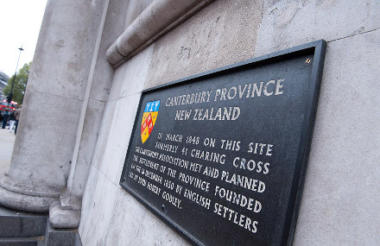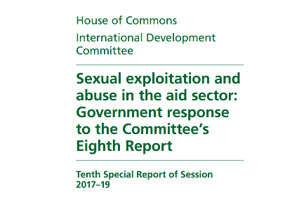The Department for International Development should review how it allocates funding to ensure more of it reaches smaller charities with community knowledge, the Conservative Party Conference has heard.
Catherine Faulks who is a Conservative Party councillor and a trustee of the Whitley Fund for Nature, a charity that provides training and support to community leaders in the Global South, raised the point from the audience during a fringe event about conservation and climate change yesterday.
She said that developing leadership at a community level is important because “those are the people that will really understand where the forests are being cut down why they’re mining, why they’re logging.”
“Our issue is with DfID and the government is that the money never trickles down to charities like ours who actually know where to find local levels,” she said. “It gets whittled down and doesn’t get down to the ground.”
She added: “DfID should look at how they fund UK charities or national charities; how you actually reach those countries on the ground to find out how you actually institute sustainable change.”
No-one from DfID was present on the panel to respond to her comments, but they were addressed by Tanya Steele, chief executive of WWF-UK, who said that while the UK arm of WWF “does not receive money directly from DfID”, some of its country-based organisations do.
She agreed that when it comes to local knowledge, there is “no comparison”, with communities often ahead of scientists in understanding how their local area operates.
However, she added: “More generally, and in fairness this is in support of DfID, I know that they have been trying to work much harder to enable smaller disbursements of funds to smaller civil society organisations around the world.”
DfID funding targeted at smaller charities includes the Small Charity Challenge Fund (SCCF), which offers grants of up to £50,000, and SCCF Capacity Development Grants, which are available up to £100,000.
Smaller charities can also apply for UK Aid Match, where the government will match every £1 raised by giving a further £1.
‘In a way aid is funding trade’
Earlier in the discussion, Steele spoke of the importance of using trade as way to address climate challenges positively.
She said it “can be a force for good”, but that there are currently examples where it is not, and that trade which damages the environment is being propped up by aid funding.
For example, she said: “Today the UK rightly funds reforestation initiatives via the international climate fund, but on the other side we along with Europe and China are importing unsustainable soy through our supply chain through the feed for chickens.
“So in a way aid is arguably funding bad trade and that does not make economic sense for the future.”
She spoke of the “incredible opportunity” for policy makers, governments and businesses to “put commitments into action”.
|
Related articles












